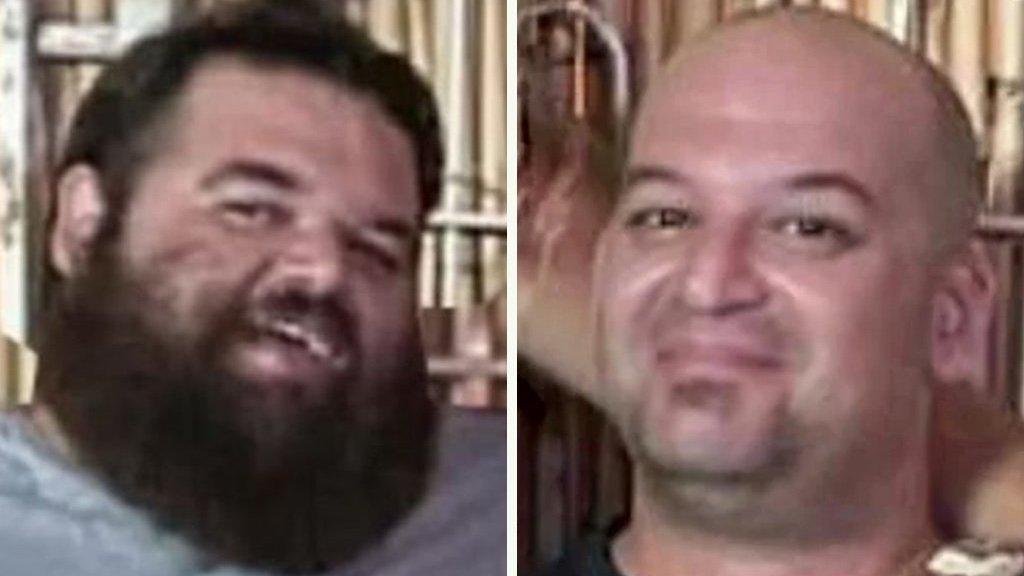Some Gazans returning to north despite risks, UN says
- Published
Inside the Gaza hospital overwhelmed by the injured
Some Palestinians who fled their homes in the north of Gaza are starting to return because of the dire situation in the south, a senior UN official says.
Israel told 1.1 million residents of Gaza City and other northern areas to leave for their own safety last week.
But the UN official said they were struggling to find shelter, food and drinking water in the south.
The Hamas-run health ministry also said hundreds had been killed there in Israeli air strikes over the past day.
The Israeli military said it had hit hundreds of military targets belonging to Hamas across Gaza, as it stepped up its air campaign ahead of an expected ground offensive.
More than 5,000 people are now reported to have been killed across the Strip, according to the Hamas-run health ministry, since Israel began its bombardment in response to an unprecedented cross-border attack by Hamas on 7 October, in which at least 1,400 people were killed and 222 taken hostage.
Israel has also cut off electricity and most water and stopped imports of food and medicine, although it has allowed in several dozen aid lorries through Egypt's Rafah crossing since Saturday.
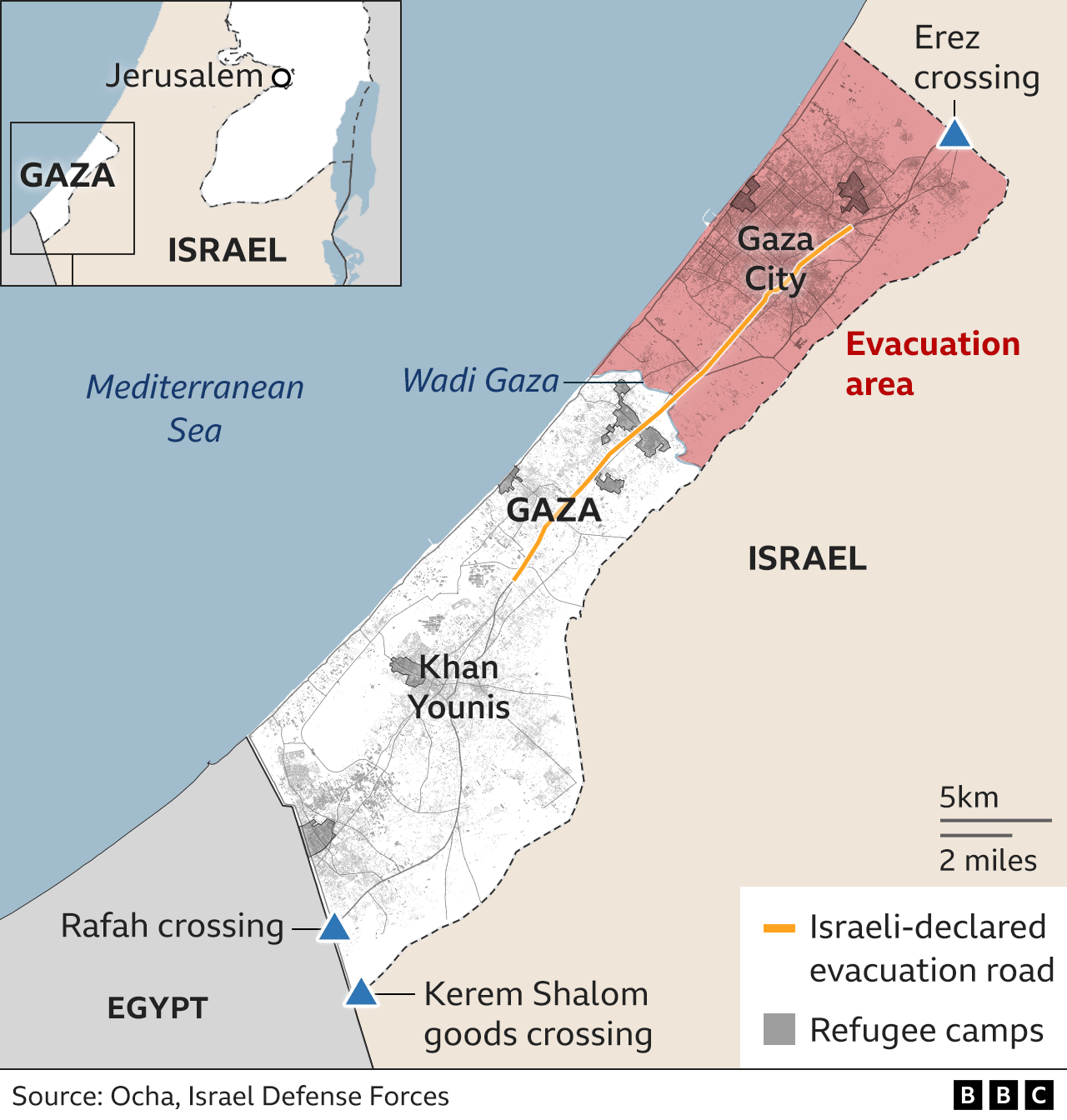
The UN estimates that almost two thirds of Gaza's population - 1.4 million people - have fled their homes over the past two weeks either out of fear or because their homes have been destroyed or damaged.
The BBC's Rushdi Abualouf in Khan Younis says the southern city has been overwhelmed by the influx of between 600,000 and 700,000 displaced people, with many sheltering inside hospitals, clubs and restaurants, or even forced to sleep in the streets.
The director of the UN agency for Palestinian refugees (Unrwa) in Gaza, Thomas White, told the BBC that most displaced people were living off just 1 litre (34 fl oz) of water and one or two small rounds of Arabic bread a day.
The humanitarian crisis, combined with continued strikes on civilian areas in the south, meant that "some people are going back to the north", he said.
"Essentially, people have left everything in the north - their houses, their businesses, their lives. They've come to the south where they are struggling to find shelter, food is scarce, many people are having to drink unpotable water, so the situation in the south is dire."
Riyad Jaabas, a displaced man staying in Khan Younis, told Reuters news agency: "We were expelled from Gaza City. They said Khan Younis is a safe area, now there is no safe space in all Gaza."
On Saturday, leaflets dropped over Gaza City by the Israeli military warned that anyone who did not move south of the Wadi Gaza river "might be identified as an accomplice in a terrorist organisation".

More on Israel-Gaza war
Follow live: Latest updates
Explained: What is happening in Israel and Gaza, and why now?
History behind the story: The Israel-Palestinian conflict
Gaza: Dead and wounded strain Gaza hospitals as air strikes intensify

And although the UN welcomed the arrival of 34 lorries carrying food, water and medical supplies over the weekend, Mr White warned that hundreds more a day were required to meet Gaza's needs, particularly those carrying fuel.
"Before the conflict Gaza was receiving about 455 trucks a day, so we've got a long way to go to scale up the logistics operation."
"We have about three days left of fuel inside Gaza," he added "This is something that Israel needs to allow to enter Gaza, otherwise our aid operation will come to a halt. Desalinization plants will start running out of water. Hospitals will start having to shut down their wards."
Gaza's health ministry warned that the generators at 13 public hospitals were running out of fuel and that they were only running the most essential life-saving services, including incubators helping to keep 130 babies alive.
Israel is refusing to allow fuel in, saying it could be stolen and exploited by Hamas for military purposes.
An Israeli defence ministry agency said on Sunday that Hamas had "a fuel reserve of 1 million litres", external. It accused the group of "refusing to hand [fuel] out to facilities in need" and using it for "lighting up their terror tunnels, for rocket launchers, and for their own homes".
Watch: Life in Gaza - From lead singer to being homeless and seeking shelter
On Monday, the Israel Defense Forces (IDF) announced that its forces had struck 320 targets in Gaza over the past day, including "tunnels containing Hamas terrorists, dozens of operational command centres... military compounds, and observation posts".
"Furthermore, the IDF struck targets that posed a threat to forces in the area surrounding the Gaza Strip who are preparing for ground operations, including dozens of mortar shell and anti-tank missile launch posts," it added.
Overnight, videos shared on social media showed the blasts of successive Israeli strikes on Gaza lighting up the sky.
The director of the Al-Quds hospital in Gaza City told the BBC that there were 10 strikes within 100m (330ft) of the facility, where there were 500 patients and another 1,500 people taking shelter.
On Monday afternoon, Gaza's health ministry said 436 people, including 182 children, had been killed in the past 24 hours, most of them in the south.
The ministry also announced that the overall death toll in Gaza since Israel began responding to Hamas's cross-border attack had risen to 5,087.
The figure includes 471 people who the health ministry said were killed by an explosion at al-Ahli Arab hospital in Gaza City. Hamas blamed an Israeli air strike, but the IDF presented evidence that it said showed the blast was the result of a failed rocket launch by Palestinian Islamic Jihad.
On Monday, the UK government said it had also assessed that the explosion was "likely caused by a missile or part of one that was launched from within Gaza towards Israel", echoing the conclusions of the US, France and Canada.
The IDF says 7,000 rockets have been fired towards Israel by Hamas and other groups in Gaza since 7 October, with 550 failing and landing inside Gaza.

- Published23 October 2023
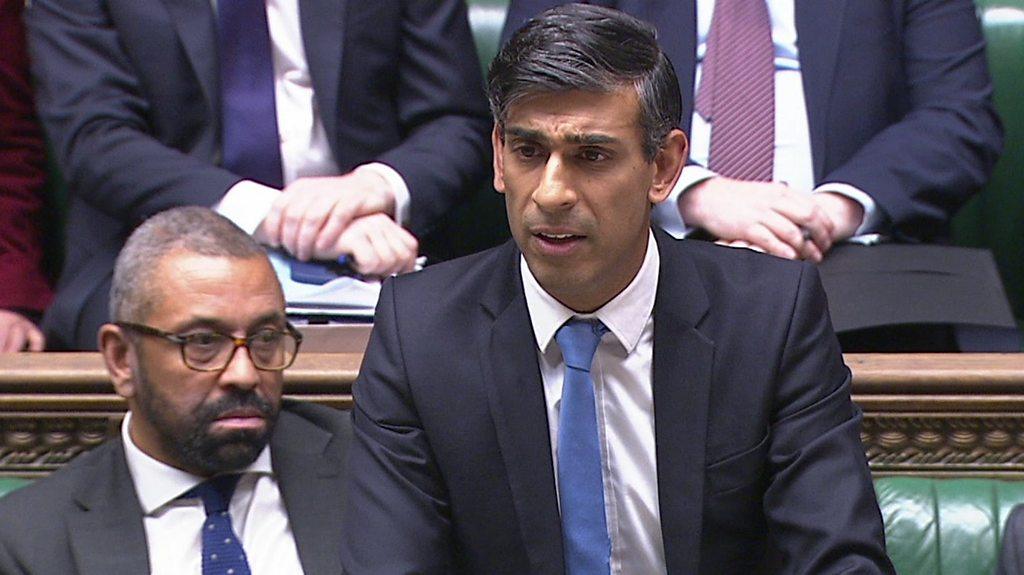
- Published23 October 2023
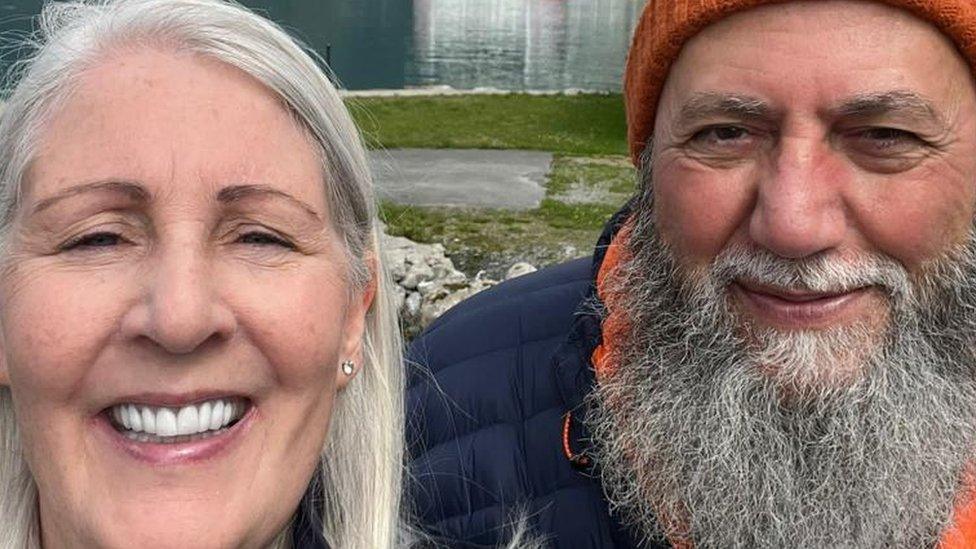
- Published23 October 2023
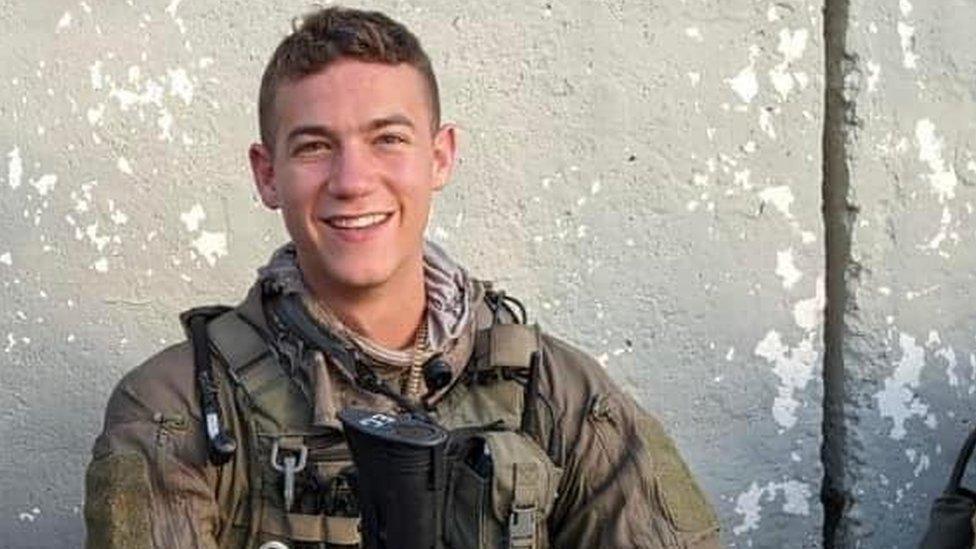
- Published27 February
